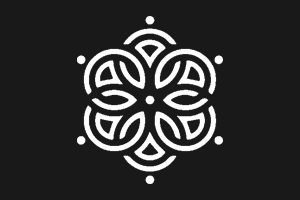Vi presentiamo la nostra Suite Alloro (Laurel), all'interno della Masseria Corte degli Aromi di Palmariggi (Otranto).
Masseria
Corte degli Aromi
A STORY BEGAN IN 1886
Of some places, even the name smells of beauty: Corte degli Aromi is one of these (Masseria in Puglia). A splendid Masseria that tastes of ancient.
Being caressed by the typical fragrances of Mediterranean vegetation is a privilege that Corte Degli Aromi reserves for its guests so that they can enjoy an authentic sensory experience, able to restore body and soul.
The services offered are undoubtedly the business card of the structure, designed to fully satisfy even the highest and most refined expectations. Everything in this place is designed to arouse pleasure: from the delicacies of the restaurant to the captivating drinks of the cocktail bar, from the modern and well-equipped fitness center to the elegant barbershop with an adjoining make-up and massage area. And again, from the enchanting shared swimming pool to the path that winds through the greenery, along which you can indulge in relaxing walks in the open air, surrounded exclusively by the sounds of nature.
The Suites
Corte Degli Aromi offers its guests seven extra luxury suites that take their name from the different tree species present in the Masseria. Each of them is equipped with a Finnish sauna, Turkish bath, emotional shower and the latest generation whirlpool tub.
Outside, a lush garden with intense scents that surrounds the private swimming pool with hydromassage, with direct and exclusive access from the room.
Both the suites and the related gardens are characterized by the refined taste that has been able to blend retro and modern elements in a wonderful mix, always guaranteeing maximum comfort.
Common Spaces
In one of the two buildings of the structure, the welcoming RECEPTION introduces to a room that, thanks to the elegance of its furnishings, captivates even the most distracted glances: from vintage to exotic, passing through contemporary, with the BAR CORNER enclosed from the OPEN KITCHEN.
The dishes, inspired by the concepts of authenticity and simplicity, made using zero-kilometer products, are an important strength of the location. A carefully selected list of excellent wines is the natural completion of lunches and dinners served in a discreet and regenerating environment, capable of nourishing the sight as well.
Luxury
SUITES
HISTORY
Palmariggi
The first certain news of Palmariggi comes in 1269 when Charles I of Anjou divided the fief in half. In 1330 Guidone Sambiasi reunified it and thus reunited it passed subsequently to various families: to the Cesaroli, to the Santacroce, to the Ventura. From 1463 it became the property of the Aragonese, then of the Mattei family, of the Varvassi and finally in 1688 of the Vernazza. According to the historian Maselli, Palmariggi was originally a castle of Otranto, built in its defense from internal incursions coming from the ports of the Ionian sea. The first urban agglomeration called Casale San Nicola was built around the castle and was attacked several times, dismantled and destroyed and then rebuilt.
A popular tradition has it that in 1480, after the capture of Otranto, the Saracen hordes began to plunder the villages of the hinterland and also the small Casale San Nicola. On the hill of Monte della Guardia, known as Montejuzzu (Mons Jovis), the men of the Casale were preparing for a confrontation with the Turks while the women took refuge in the Church to invoke divine help. When the Turks were about to attack, a prodigious event happened: the Holy Virgin appears. holding a palm at the head of an imposing phalanx. The Turks, fearing that the army led by Duke Alfonso of Aragon was about to arrive, withdrew and the population was saved.
Hence the name and emblem of the country which could be explained in the sense of fruitfulness and firmness: the palm was in fact a symbol of abundance and durability, but also of victory and resistance, among the ancients.
In memory of this event, according to tradition, the inhabitants of the farmhouse wanted to change the name of Casale San Nicola in Palmarice, Palmaricce and finally Palmariggi, which means precisely “You who hold the palm”, in memory of the Madonna holding the palm and whom they elected to be their protector. Transparency Evaluation and Merit on-line Praetorian Register Office for Relations with the National Civil Service



